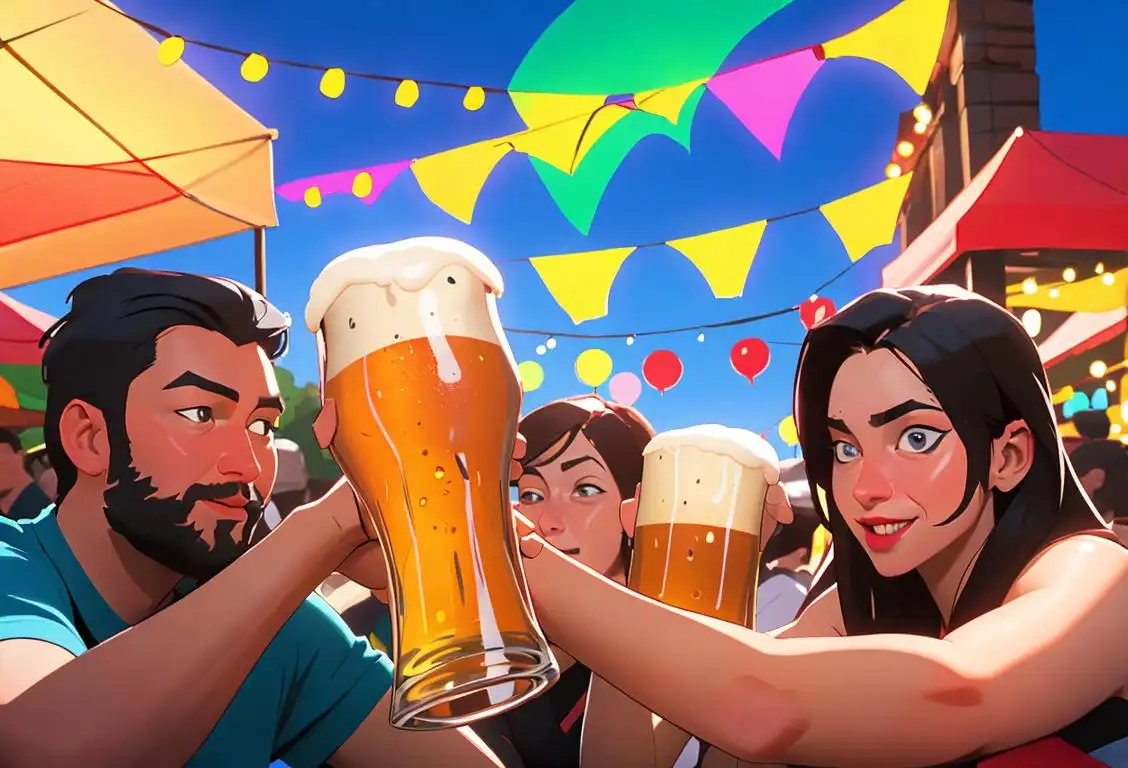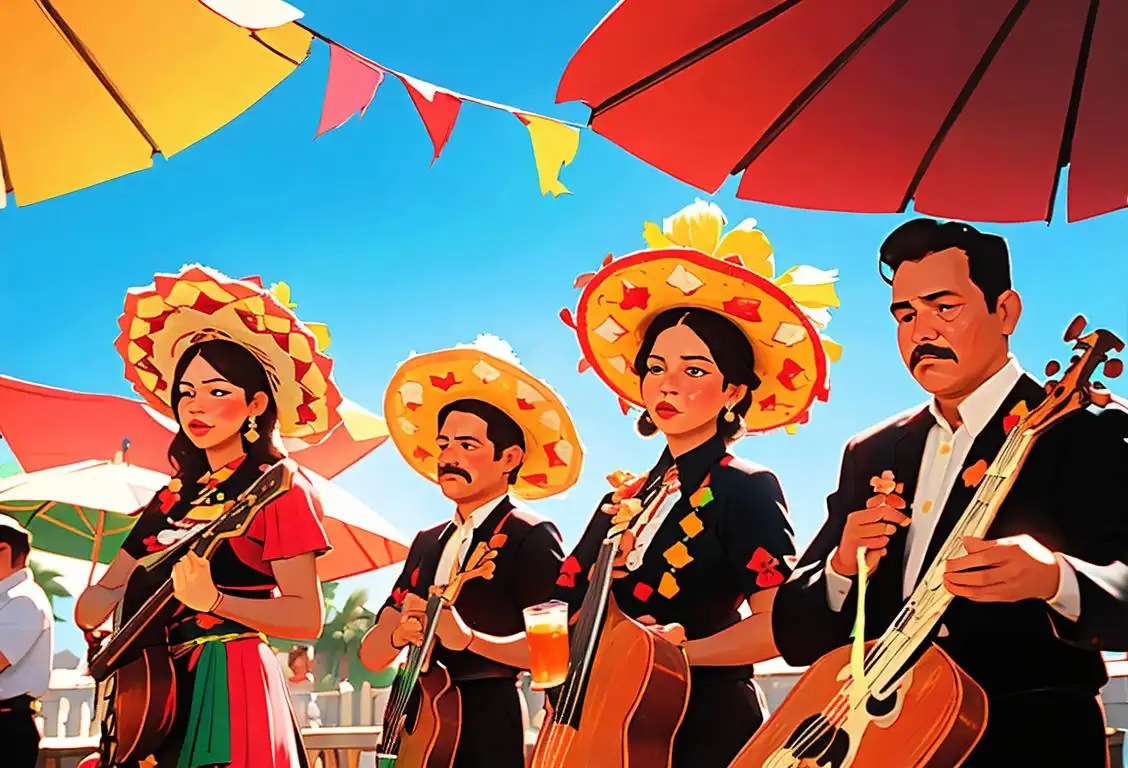National Beer Drinking Day

Get ready to raise your glasses, because it's National Beer Drinking Day! This hopped-up holiday is celebrated by beer enthusiasts all around the country, and it's the perfect excuse to indulge in your favorite brew. So sit back, relax, and let's dive into the fizzy and fascinating world of beer!
When is Beer Drinking Day?
It's national beer drinking day on the 28th September.
The Internet History of National Beer Drinking Day
Here at WhatNationalDayIsIt.com, we love to dig into the origins of these national holidays. But when it comes to National Beer Drinking Day, it's a bit different. You see, the internet has been buzzing with mentions of this joyous occasion for years, but we couldn't find any official records of its inception. It appears that National Beer Drinking Day is a grassroots celebration that beer lovers just can't resist.
It's not surprising that beer has its special day in the spotlight. After all, humans have been enjoying this bubbly beverage for centuries. From ancient Sumerians brewing their first batches of beer to monks perfecting their recipes in European monasteries, beer has become a beloved part of our culture.
And thanks to the power of the internet, National Beer Drinking Day has gained even more momentum. Beer enthusiasts, breweries, and bars across the nation take this day as an opportunity to host beer-themed events, tastings, and parties. It's a day to appreciate the artistry of brewing, the diversity of beer styles, and the camaraderie that comes with sharing a pint.
History behind the term 'Beer Drinking'
4000 BCE
Ancient Origins
Beer drinking can be traced back to at least 4000 BCE in ancient Mesopotamia (modern-day Iraq). The Sumerians, who inhabited this region, were among the first to brew beer. They had a goddess of beer named Ninkasi, and beer was not just a beverage but also an essential part of their daily diet and religious rituals. Beer was made from barley, which was cultivated in the fertile land between the Tigris and Euphrates rivers.
Circa 1500 BCE
Egyptian Brews
By circa 1500 BCE, beer production had spread to ancient Egypt, where it was considered a staple of the Egyptian diet. The Egyptians had their own goddess of beer, Hathor, and beer played a significant role in their religious ceremonies. They used barley to make beer and flavored it with various ingredients like dates, honey, and herbs.
9th Century CE
Monastic Brewing
During the 9th century CE, monks in Europe began brewing beer within monasteries. Brewing beer became a common practice in monastic communities, as it provided a safe alternative to water, which was often contaminated. Monastic breweries greatly contributed to the development of brewing techniques and the spread of beer knowledge across Europe.
16th Century CE
Reinheitsgebot in Germany
In the 16th century CE, Germany introduced the Reinheitsgebot (Beer Purity Law), which regulated the ingredients that could be used in brewing beer. The law stated that beer could only be made from water, barley, and hops. This law aimed to maintain the quality of beer and prevent the use of wheat for brewing, as wheat was considered a food staple. The Reinheitsgebot had a lasting impact on German beer culture.
18th Century CE
Industrial Revolution and Beer
With the advent of the Industrial Revolution in the 18th century, beer production saw significant technological advancements. Industrialization allowed for mass production and distribution of beer, making it more accessible to the general public. The introduction of brewing machinery and improved transportation systems catalyzed the growth of commercial breweries.
20th Century CE
Craft Beer Renaissance
In the late 20th century, a craft beer renaissance took place across the globe. This movement focused on small-scale, independent breweries that prioritized quality and creativity over mass production. Craft beer gained popularity among beer enthusiasts, leading to the emergence of countless unique flavors and styles. It marked a shift towards appreciation for diverse and artisanal beer experiences.
Did you know?
Did you know that the oldest recipe for beer dates back to around 1800 BCE? It was discovered in an ancient Sumerian poem called the 'Hymn to Ninkasi,' which also served as a guide for brewing beer. Talk about a divine drink!Tagged
fun beveragesFirst identified
7th April 2015Most mentioned on
28th September 2016Total mentions
1170Other days
Drink A Beer Coffee Day
Margot Robbie Day
Beer Can Day
Coffee Beer Day
Coffee Busch Light Day
Ginger Ale Day
Michelada Day
Beer Drinking Day
Liquor Day
Henny Day








